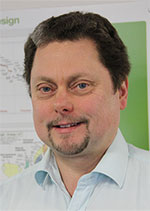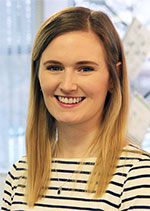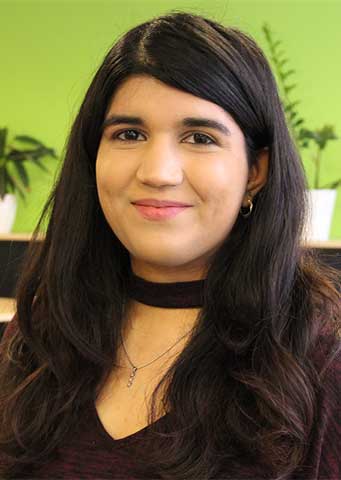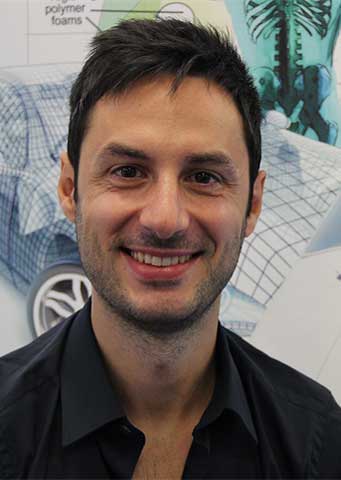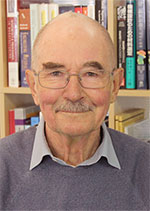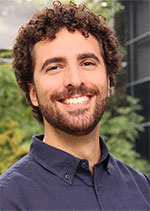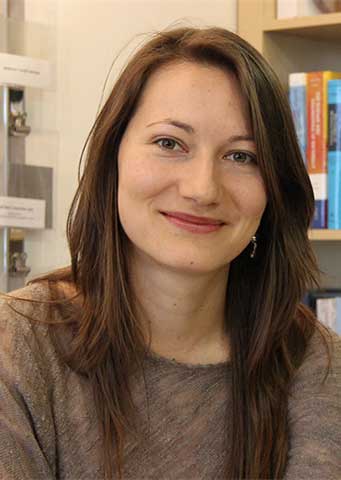Pre- Symposium Workshops
| COVID-19 Important Information! |
|
The health and safety of all attendees is of paramount importance. Following recommendations from Centers for Disease Control (CDC), World Health Organization (WHO) and local public health authorities we have made the hard decision to cancel the 2020 Materials Education Symposia. This includes both the International and North American events. We will be scheduling mini online events for 2020 and look forward to continuing the series in 2021. For anyone that had registered for IMES 2020 or NAMES 2020, you will be contacted shortly with next steps. If you would like any additional information, please contact help@materialseducation.com |
| APRIL 1 | MORNING | CES EduPack Workshop |
| APRIL 1 | AFTERNOON | Advanced Materials Selection: Industry Inspired Case Studies |
| APRIL 1 | AFTERNOON | Sustainability Assessment with CES EduPack |
| APRIL 1 | AFTERNOON | Bioengineering: Introducing the New Medical Device database |
CES EduPack Workshop
When: April 1 (9am-12:30pm)
Organizer: ANSYS Granta
Cost: Full Event package includes this workshop, any Wednesday afternoon workshop and the Symposium.
Note: attendees will need to bring their own laptop computers for the hands-on sessions, and will be provided with the new CES EduPack software. Please ensure this is a Windows machine and that you have administrator privileges.
Who is the course for?
Anyone new to the CES EduPack teaching resources, or seeking a refresher. Professors, Lecturers, and Program Directors of university and college courses related to materials and manufacturing. The course is relevant to the following disciplines: mechanical engineering; production engineering; aerospace engineering; materials science and engineering; industrial and product design; polymer science and engineering; eco-engineering; chemical engineering; bio-engineering; and architecture and the built environment.
What is the course about?
CES EduPack has been created by Professor Mike Ashby of Cambridge University and his colleagues over the past 20 years. Both the resources that it provides and the ideas that it implements are valuable to educators across a broad range of engineering-related courses, and from first to final-year teaching. They have been used to support and reinforce existing courses that use a variety of teaching approaches and texts, as well as in the design of new courses.
The course will show, through lectures interspersed with hands-on tutorial sessions using the software, how such resources can assist materials teaching.
- Learn about a highly visual, interactive and systematic material selection methodology
- Discover how to support the teaching of Eco Design and Sustainability from a materials perspective
- Find out about material selection with conflicting criteria (eg. cost, mass, and performance)
- Get one month's access to all CES EduPack databases and editions.
Outline Agenda
| 09:00 | Registration & refreshments |
| 09:30 | Course opens—Welcome, Introductions and Agenda Review |
| 09:45 | Getting Started with CES EduPack Learn how to engage students using our interactive, visual software, with access to reliable materials data including hands-on exercises. |
| 10:45 | Coffee Break |
| 11:00 | Materials Selection: translation, screening, ranking Discover the basics of systematic materials selection methodology, teaching transferable skills to your students, including hands-on exercises. |
| 12:00 | Tools for Materials Decisions and Innovative Design Overview of the Eco Audit Tool enabling life-cycle thinking and eco design for greener products. See also how to create hybrids and composites with the Synthesizer Tool. Both tools are used in Advanced Industrial Case Studies on the Education Hub. |
| 12:30 | Lunch |
Workshop: Advanced Materials Selection: Industry Inspired Case Studies
When: April 11 (1:30pm-5:30pm)
Organizer: ANSYS Granta
Cost: Adds £100 to Symposium fee; included in full event fee
Workshop Leaders: Dr. Claes Fredriksson and Luca Masi
Advanced material selection involves making use of several performance indices simultaneously and consider trade-offs between attractive properties, such as low cost and weight but high stiffness and strength. Professional product developers use our visualization tools for quick and powerful decisions.
In this workshop, we will make use of the features of the advanced Level 3 Aerospace database. We will review external databases on aerospace alloys and composites and demonstrate some temperature-dependent data on mechanical properties. The Synthesizer tool will be discussed in terms of light-weighting, useful both for aerospace and automotive.
We will be taking a closer look at our Advanced Industrial Case Studies, dealing with automotive components and lightweighting as well as high temperature turbine blades and components such as pressure vessels and satellite parts for temperatures in space, near absolute zero.
In this workshop you will:
- Get an introduction to the Aerospace database in the GRANTA EduPack software
- Learn how to perform Advanced Material Selection using the Performance Index Finder and multiple index lines
- See realistic examples of how to engage students with Advanced Industrial Case Studies
At the conclusion of the workshop, you should be able to:
- Know what distinguishes the Aerospace database
- Use the advanced tools for lightweighting and other applications
- Understand the principles of advanced material selection with multiple objectives and trade-offs
Workshop: Sustainability Assessment with CES EduPack
When: Wednesday, April 1 (1:30pm-5:30pm)
Organizer: ANSYS Granta
Cost: Adds £100 to Symposium fee; included in full event fee
Workshop Leaders: Dr. Mauricio Dwek, Prof. Mike Ashby and Dr. Tatiana Vakhitova
Sustainability is not a simple parameter that can be quantified and optimized in an engineering design. Even the simplest proposal for a “sustainable” development is intrinsically complex. Individual aspects can be explored in a systematic way but, for integration, a final assessment requires debate, compromise and reflection.
This workshop will explore how to handle decisions around proposals for sustainable change. What impact will it have on the environment? What regulatory constraints must it observe? Is it socially acceptable and fair? Is it economically viable? Sustainable development assessment requires acceptance of complexity and the ability to work with it. For this, we use the 5-step methodology, complementing it with socio-economic data from Sustainability Database in CES EduPack.
A Teaching resource package will be showcased, describing methods and tools to help students explore and form their own judgements about proposals of Sustainable Developments. Participants will go through 5-step methodology, learn about our new approach to Social Impact Assessment and use CES EduPack in this process.
In this workshop you will:
- See realistic examples of how to engage students with a project-based approach and case studies
- Get an introduction to Sustainability Edition of CES EduPack software
- Learn about our new Social Impact Audit Tool
At the conclusion of the workshop, you should be able to:
- Know what is in the Sustainability Edition of CES EduPack and how to use it
- Use CES EduPack and the 5-step methodology in your teaching to engage student in a problem based manner
- Understand the ideas behind the Social Impact Audit Tool and Social Life-Cycle Assessment.
Workshop: Bioengineering: Introducing the New Medical Device database
When: Wednesday, April 1 (1:30pm-5:30pm)
Organizer: ANSYS Granta
Cost: Adds £100 to Symposium fee; included in full event fee
Workshop Leaders: Dr. Harriet Parnell and Dr. Lakshana Mohee
Global populations are living longer, and consequently the demand for more sophisticated medical technology is growing. Biomedical materials need to be considered throughout their life-cycle, i.e., from design to testing, through regulatory approvals, production and the end of life.
This workshop will focus on the Bioengineering Edition of CES EduPack and investigate how it can be used to support student learning in this multidisciplinary field. The Bioengineering databases are explored interactively, comparing Level 2 to Level 3. We demonstrate how engineering materials can be visually compared to biological materials in Ashby Charts.
We will also look at the Medical Device database, new to CES EduPack 2020, centred around 50 generic devices. Through hands-on activities, including micro-projects and an advanced industrial case study, we highlight how medical devices can provide an engaging platform from which students can learn about a variety of topics including biomaterials and FDA regulations.
In this workshop you will:
- Get an introduction to the Bioengineering databases in the CES EduPack software
- Learn how to use our new medical device database
- See realistic examples of how to engage students with our micro-projects and case studies
At the conclusion of the workshop, you should be able to:
- Know what is in the Bioengineering databases and how to use them
- Use EduPack in your teaching to engage students in new and interactive ways
- Understand our new Medical Device database and the ASM medical materials database

